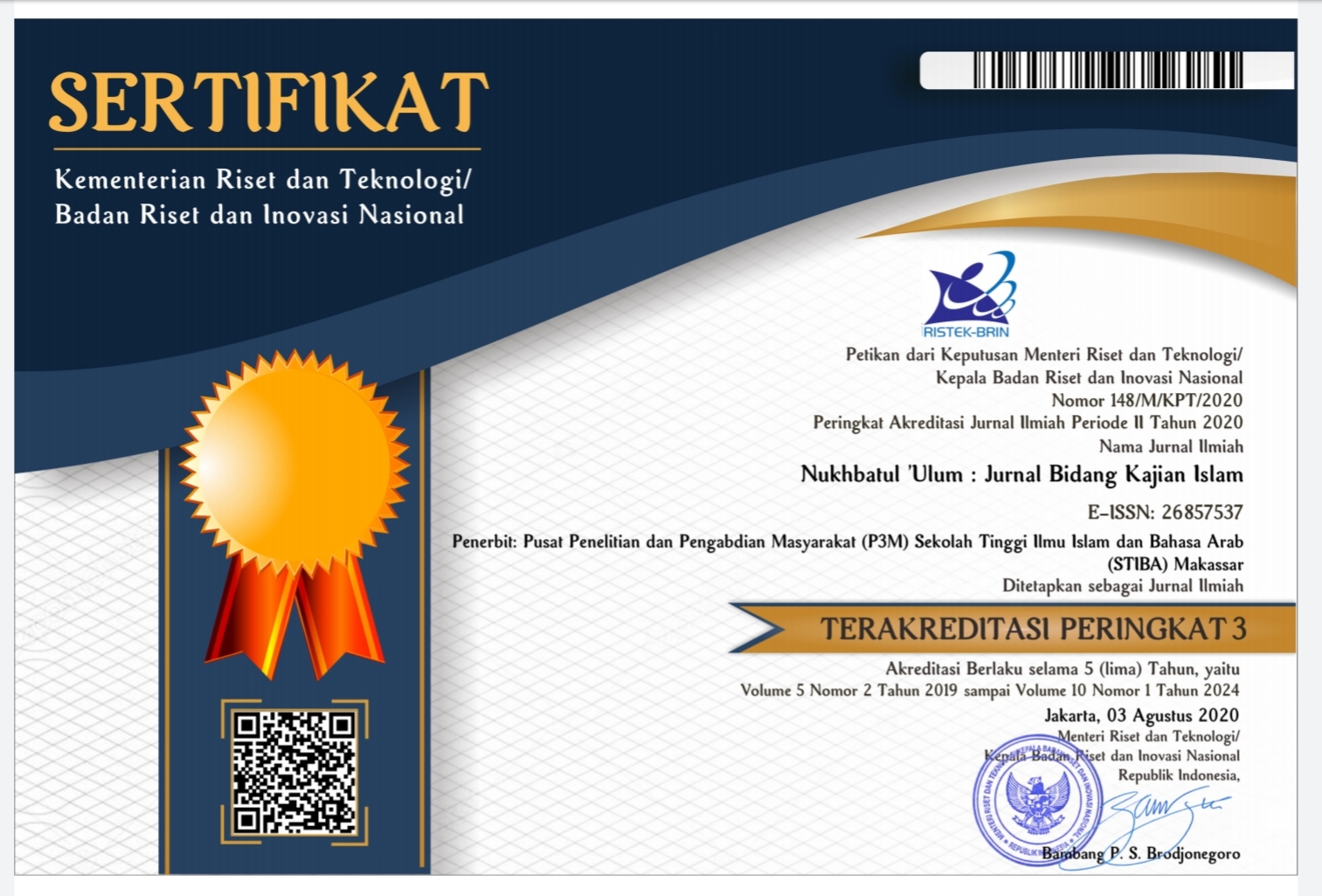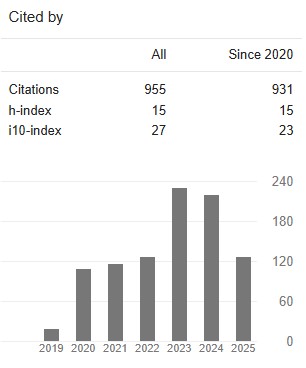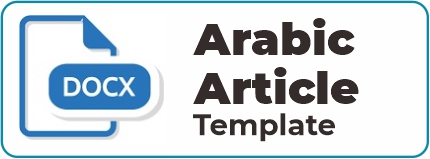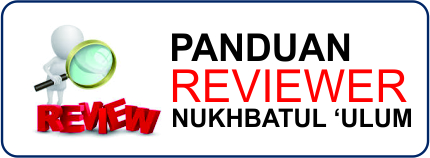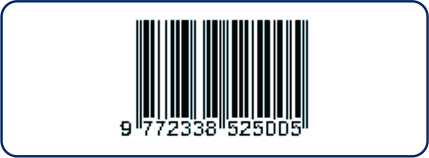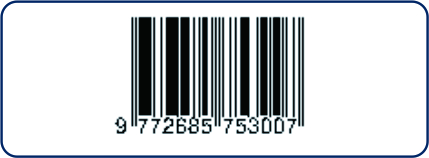Implementasi Etika Bisnis Islam dalam Pengelolaan dan Pelayanan Unit Bisnis Wahdah Islamiyah
Implementation of Islamic Business Ethics in the Management and Service of Wahdah Islamic Business Units
DOI:
https://doi.org/10.36701/nukhbah.v9i2.1049Keywords:
ethics, business, Islam, Wahdah IslamiyahAbstract
This study aims to: (1) analyze the implementation of the concept of Islamic business ethics in the service of Wahdah Islamiyah business units; and (2) analyzing the use of the concept of Islamic business ethics in the service of Wahdah Islamiyah business units. This research is a field research (field research) using qualitative methods that are carried out in a descriptive analysis. The results of this study indicate that: first, all informants (100%) answered that the principles/ethics of monotheism had been applied/practiced, the majority of informants (61.5%) answered that the principles or ethics of justice had been applied/practiced, as many as 42.3% of informants chose very appropriate and 42.3% of informants chose appropriate regarding the application/practice of the principles/ethics of trustworthiness, and as many as 19 people or 73.1% of informants chose very appropriate regarding the application/practice of the principles/ethics of virtue and honesty; second, the Islamic business principles/ethics that have been implemented provide great benefits and uses for the management and service of business units within Wahdah Islamiyah, where the implementation of the principles/ethics of monotheism is believed to bring blessings, the implementation of the principles/ethics of justice is believed to create a work environment that is fair, inclusive, dignified, and in accordance with Islamic law, the implementation of the principles/ethics of trustworthiness is believed to be able to increase the trust of customers and other parties, and the implementation of the principles/ethics of virtue/honesty is believed to be able to improve and provide excellent service to all parties.
Downloads
References
Arikunto, Suharsimi. Prosedur Penelitian: Suatu Pendekatan Praktik. XIV. Jakarta: Rineka Cipta, 2010.
Bungin, Burhan. Metodologi Penelitian Kuantitatif. Jakarta: Kencana Prenada Media Group, 2013.
Djaali, H, and Pudji Muljono. Pengukuran Dalam Bidang Pendidikan Gramedia Indonesia. Jakarta: Gramedia Indonesia, 2007.
Durin, Ramzi. “Arti Penting Menjalankan Etika Dalam Bisnis.” VALUTA 6, no. 1 (2020): 32–40.
Hamid, Abdul, and Muhammad Kamal Zubair. “Implementasi Etika Islam Dalam Pemasaran Produk Bank Syariah.” BALANCA: Jurnal Ekonomi Dan Bisnis Islam 1, no. 1 (2019): 16–34.
Herdiansyah, Haris. “Wawancara, Observasi, Dan Focus Groups: Sebagai Instrumen Penggalian Data Kualitatif.” Jakarta: Rajawali Pers, 2013.
Irawan, Heri. “Penerapan Etika Bisnis Islam Pada Pedagang Sembako Di Pasar Sentral Sinjai.” Universitas Islam Negeri Alauddin Makassar, 2017.
Irma. “Implementasi Nilai Pemasaran Syariah Pada Produk Syariah Bumiputra 1912 Cabang Palopo.” IAIN Palopo., 2015.
Ismawati. “Implementasi Etika Bisnis Islam Dalam Sistem Operasional Perbankan Syariah (Studi Kasus Bank Muamalat Kota Palopo.” Institut Agama Islam Negeri (IAIN) Palopo, 2019.
Jubaedi, Jubaedi. “Implementasi Etika Bisnis Islam (Studi Kasus Pada Mahasiswa Ekonomi Syariah Angkatan 2014 Fakultas Agama Islam Universitas Ibn Khaldun Bogor).” Eklektik: Jurnal Pendidikan Ekonomi Dan Kewirausahaan 1, no. 1 (2018): 11–20.
Khotimah, Khusnul. “Implementasi Prinsip-Prinsip Etika Bisnis Islam Di Aflah Bakery Yogyakarta.” Skripsi UIN Sunan Kalijaga Yogyakarta, 2017.
Khudzaefah. “Implementasi Etika Bisnis Islam Dan Promosi Dalam Peningkatan Komunikasi Kinerja Pada Bank Muamalat Jatibarang.” IAIN Syekh Nurjati Cirebon, 2017.
Mardatillah, Annisa. “Etika Bisnis Dalam Perspektif Islam.” JIS 6, no. 1 (2013): 89.
Moleong, Lexy J. Metodologi Penelitian Kualitatif. PT Remaja Rosdakarya, 2021.
Nawatmi, Sri. “Etika Bisnis Dalam Perspektif Islam.” Fokus Ekonomi 9, no. 1 (2010): 24402.
Nawawi, Hadari, and Martini Hadari. Instrumen Penelitian Bidang Sosial. II. Yogyakarta: Gajah Mada University Press, 1995.
Sampurno, Wahyu Mijil. “Dampak Penerapan Etika Bisnis Islam Terhadap Kemajuan Bisnis Home Industri Di Era Global.” Universitas Islam Indonesia Yogyakarta: Skripsi, 2016.
Sugiono. Metode Penelitian Pendidikan Pendekatan Kuantitatif, Kualitatif, Dan R&D. 25th ed. Bandung: Alfabeta, 2017.
Sugiyono, P D. “Metode Penelitian Bisnis: Pendekatan Kuantitatif, Kualitatif, Kombinasi, Dan R&D.” Penerbit CV. Alfabeta: Bandung, 2017.
Suryabrata, Sumadi. Metodologi Penelitian. Jakarta: Raja Grafido Persada, 2006.
Susanti, Evi. “Penerapan Etika Bisnis Islam Dalam Usaha Mebel Di Cv. Jati Karya Palembang.[Skripsi].” Uin Raden Fatah Palembang, 2017.
Umar, Husein. “Metode Penelitian Untuk Skripsi Dan Tesis Bisnis, Ed. 2, Cet. 13.” Jakarta: Rajawali Pers, 2014.
Yani, Erly Juli. “Etika Bisnis Dalam Perspektif Islam.” Jurnal Ummul Qura 7, no. 1 (2016): 66.
Zein, A. “Implementasi Konsep Etika Bisnis Islam Dalam Pelayanan Perbankan.” IAIN Bone, 2020.



